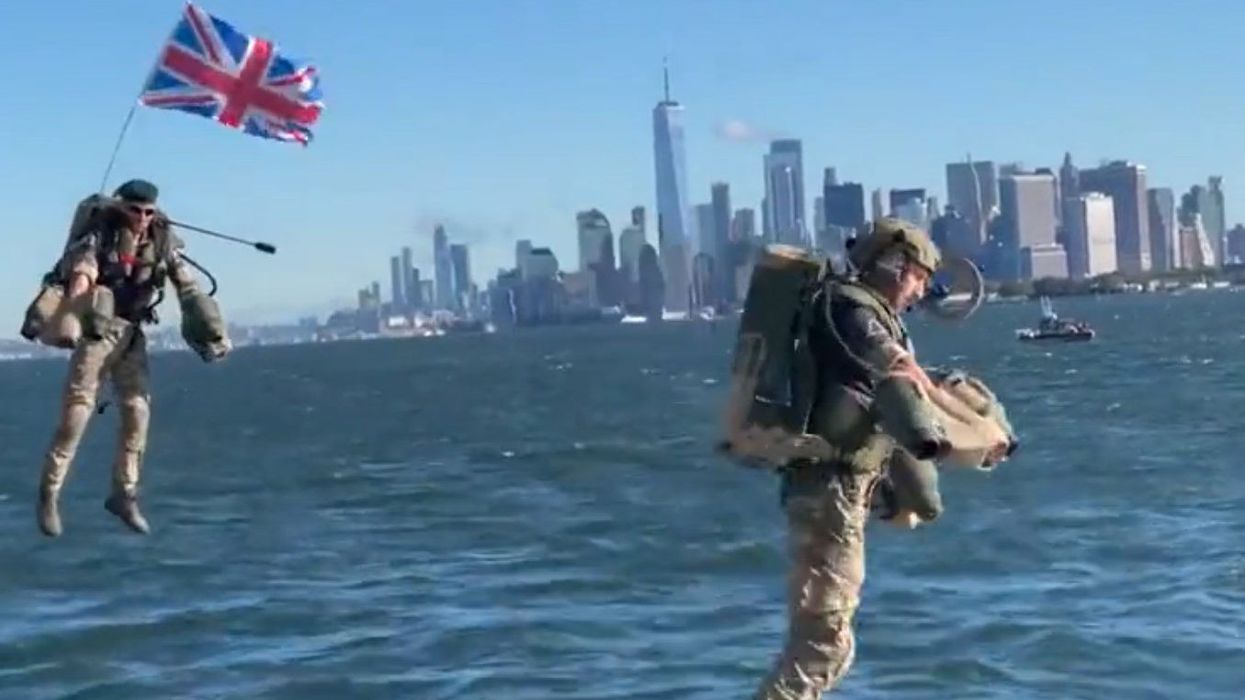In a major development, Royal Navy has tested Iron Man-style ‘jet pack’ suits over the New York Harbor and landed onto HMS Queen Elizabeth.
A video footage of the testing was posted by Salisbury, UK-based aerospace company Gravity Industries on Sunday (9).
The company has claimed that the jet packs can reach speed of more than 85mph and can fly for around 10 minutes.
Reports said that marines flew over the Atlantic in the suits with helmet-steered weapon mounts and tactical suits before landing on the carrier.
The suits were showcased when HMS Queen Elizabeth was in New York to host the Atlantic Future Forum (AFF).
“The team and I are delivering on the vision to build Gravity into a world-class aeronautical engineering business, challenge perceived boundaries in human aviation, and inspire a generation to dare ask ‘what if," said Gravity Industries founder Richard Browning, a British ex-Marine inventor.
Browning claimed that the jet packs will enable servicemen to attack from rigid inflatables and assist them to board ships and other vessels.
Browning flew his own 5-engine jet pack suit around the HMS Queen Elizabeth. Video showed that operators working with the Royal Marines were launched from rigid inflatable boats and land aboard the Royal Navy Batch 2 River-class offshore patrol ship HMS Tamar.
It is reported that the force has been testing the concept of jet suit assault teams for two years. In 2021, Royal Navy confirmed jet packs could be used to storm boats in dangerous stealth missions.
A spokesman said that Marines use stealth and speed to board suspect vessels. He added that they are specialists in terrorist assault, anti-smuggling and piracy operations around the world. "The commandos work in small teams in fast raiding boats to board suspicious vessels with the help of maritime snipers in Wildcat helicopters and drones. The trial looked at the utility of the jet suit – which allows the user to fly – in maritime boarding operations and the specialist vertical access techniques associated to them," the spokesman was quoted as saying by The Telegraph.





